“Start Small”
In the spirit of “Start small”, have you tried this?
Draw lines and color the shapes! Art can be this simple.
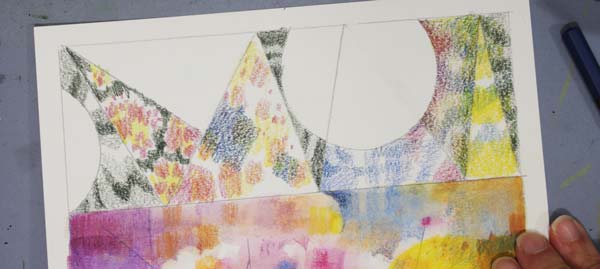
But isn’t it so, that everything just flows when you have the inspiration, and when you don’t, even a simple exercise (picked from the new course Joyful Coloring) can feel tedious.
Browsing for inspiration is never quite the same as participating in a course.
My goal in Joyful Coloring is not only to widen your mind about how you can create
but also to keep your inspiration level up.
Yes, we “start small” but with inspiration, we can also do bigger things.
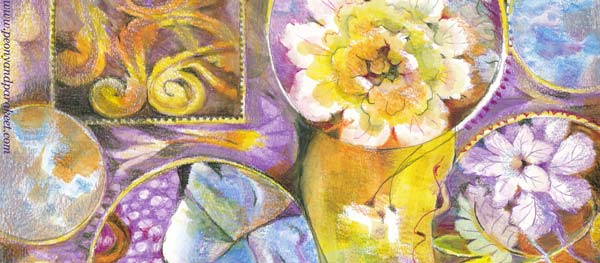
Watercolor pencils feed inspiration because they make coloring faster.
Joyful Coloring
Come with me to start small, and then create landscapes and seascapes, ornamental flowers, colorful fantasies, and modular magic.
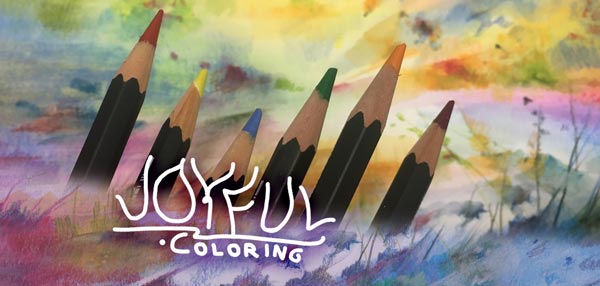
Joyful Coloring – The new course begins on Sept 16! >> Sign up Now!
Last Bloom – Watercolor Pencil Inspiration
This week we celebrate watercolor pencils and the lifecycle of flowers. I hope this post fills you with watercolor pencil inspiration!
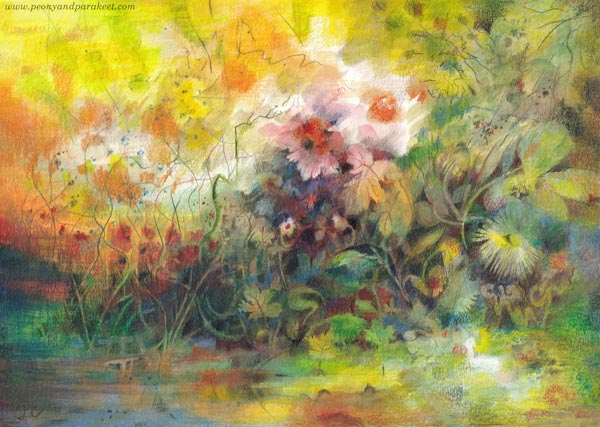
We in Finland have had a warm fall and many flowers are still blooming, even though it is already September. It inspired me to use yellows and oranges, which I love anyway.
Comforting Watercolor Pencil Inspiration
Lately, I’ve been editing videos for the upcoming course Joyful Coloring, which I recorded for the most part in the summer. I don’t know if the teacher can say it herself, the students decide that, but the videos are so inspiring!
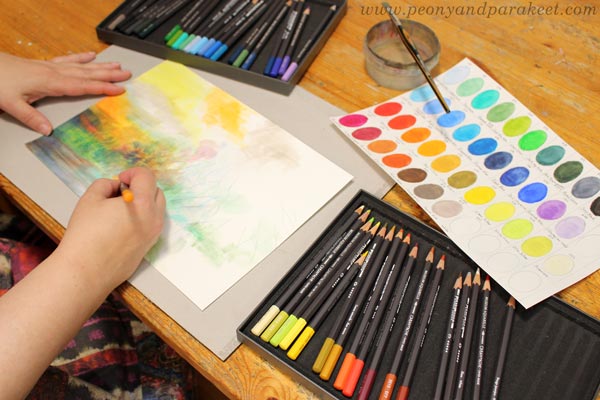
So watercolor pencils are really calling me now. I bought 20 more when I found them quite inexpensively, even though they are a good brand: Caran d’Ache Museum Aquarelle. And I also bought more paper – Fabriano Accademia Drawing Paper. It is not watercolor paper but works well for colored pencils and is more affordable. When you draw a lot, pencils and paper get used up.
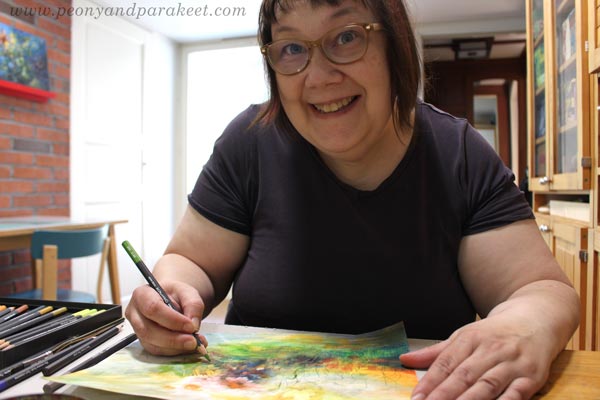
One of the best things about my job is that I can make “comfort drawings” for the blog. So, in the same way that there are comfort books, or comfort food, or comfort music, you can also make comfort drawings.
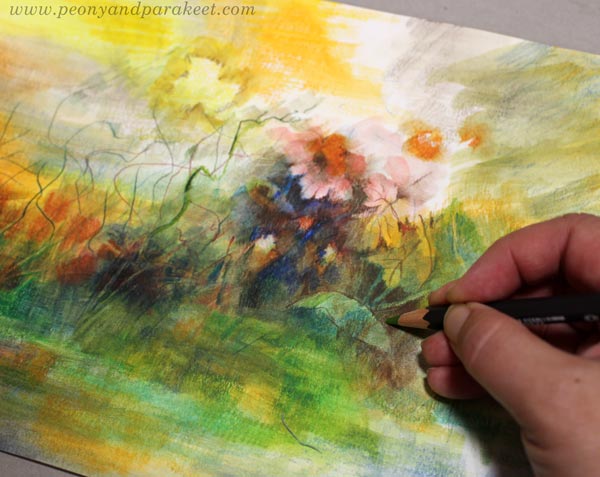
You can let colored pencils take care of all worries and unnecessary thoughts. Float in the sunshine and focus on everything beautiful!
Filling the Desert
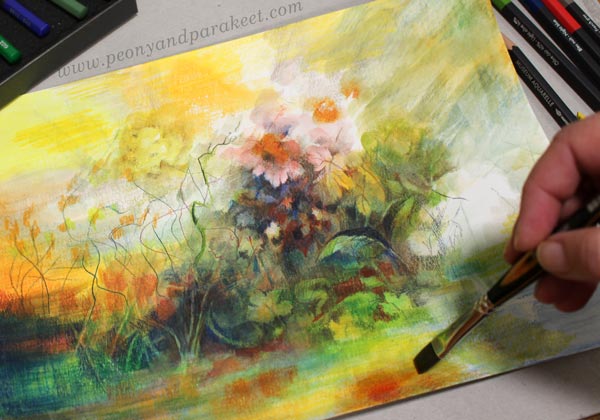
I like to start a drawing with a scenery, which I then fill. This method is also taught in the course Joyful Coloring.
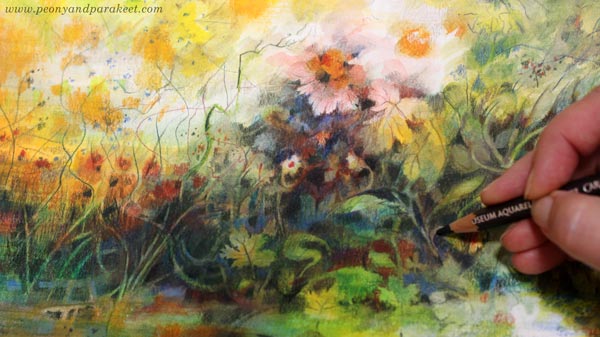
When immersing in the details, you can enjoy the fact that the world shrinks into a tiny area. I think that everything great and wonderful starts small. When thoughts decrease, possibilities expand. Then it is easier to invent and learn new things.
Meadow is a Town
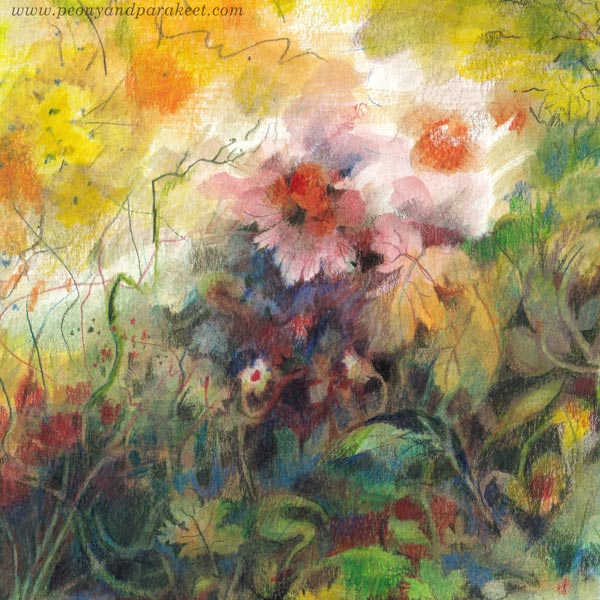
I have looked at the last flowers of summer and admired their details. It’s amazing how much there is in a small meadow flower: stems, seedcases, and flowers and leaves in different stages. And when you multiply those, the group of plants forms a busy town. A meadow is like an upright map of intersections, stations, and roads that guide the bees.
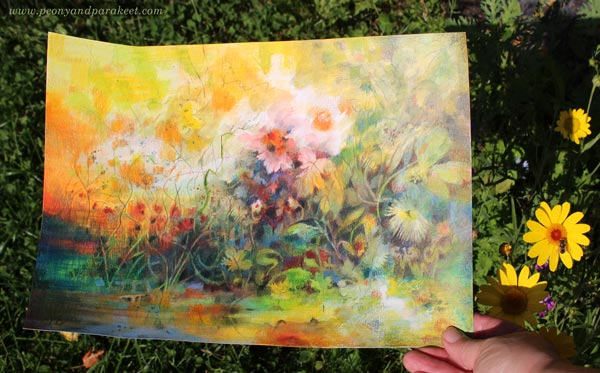
Colors of this kind of world are coming and going. Nothing is permanent and yet everything is so comforting and full of life.
Joyful Coloring – Sign up Now!
The new course Joyful Coloring begins on Sept 16!

Get your watercolor pencils and join me to create freely with joy and sunshine! >> Sign up now!
Painting a Childhood Dream
A childhood dream came true when I finally made a painting with my favorite subject.
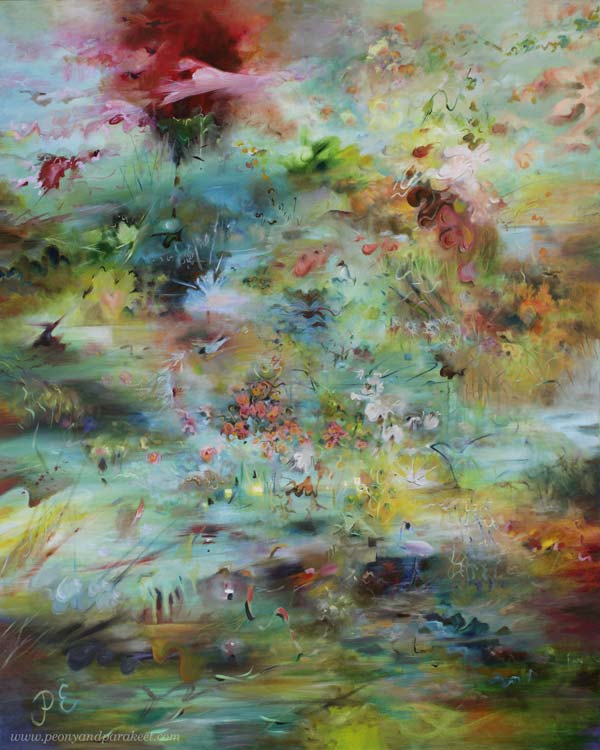
I’ve always wanted to paint mammalians, but reaching this point has taken a long time. The best must be protected before it comes out exactly as it is meant to be!
“Predators, Right?”
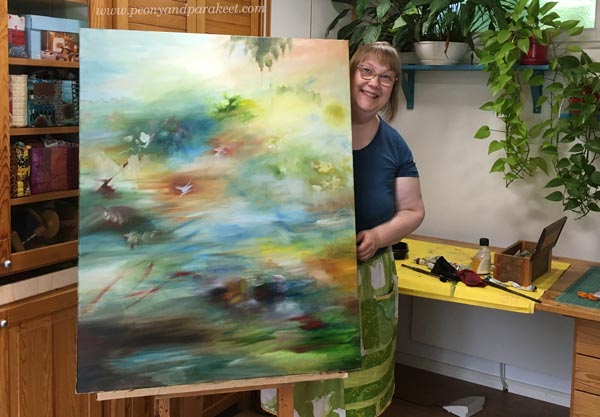
In July, I picked a brush, and said to myself: “Predators, right?”
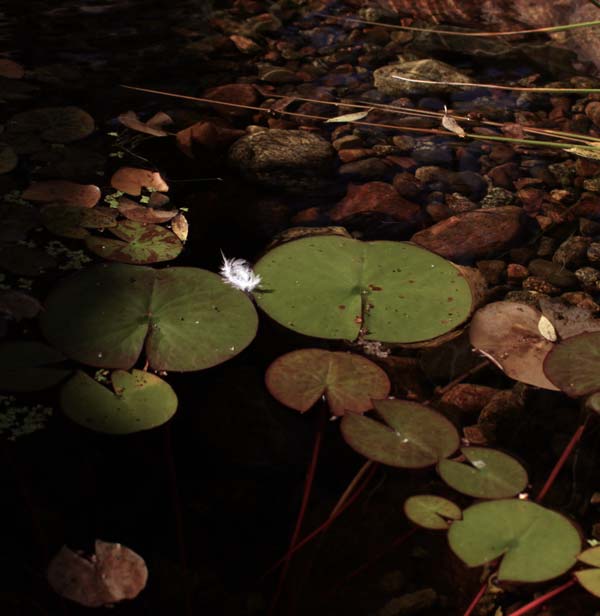
As a child, my friends talked mostly about horses, but I was a lion girl. I drew a lot of lions and antelopes: predators and prey. I had learned from nature books that the world works that way.
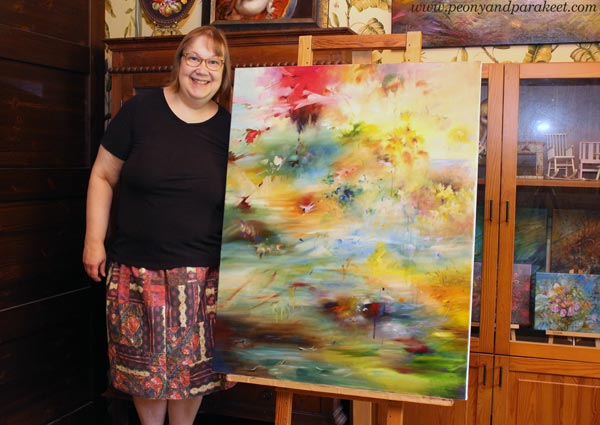
When I went to school, my parents bought a black and white television. Back then, my favorite profession was lion tamer. I wanted to be the new Joy Adamson!
“Paint What You Want!”
It is easy for a child to draw what she wants, but an adult is more critical.
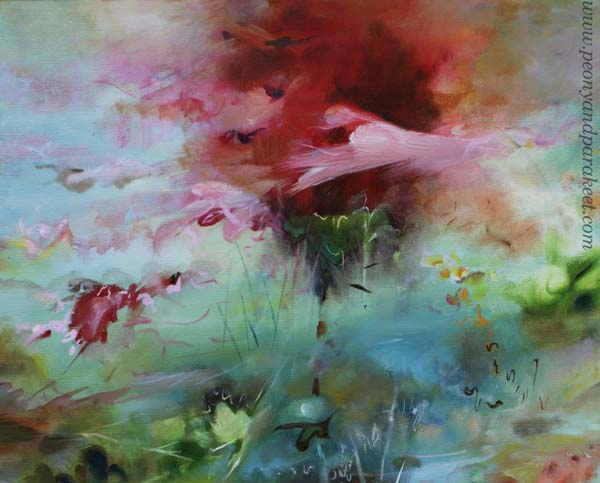
After seeing life and understanding all its complexity, prey and predator are no longer separate, but part of a whole.
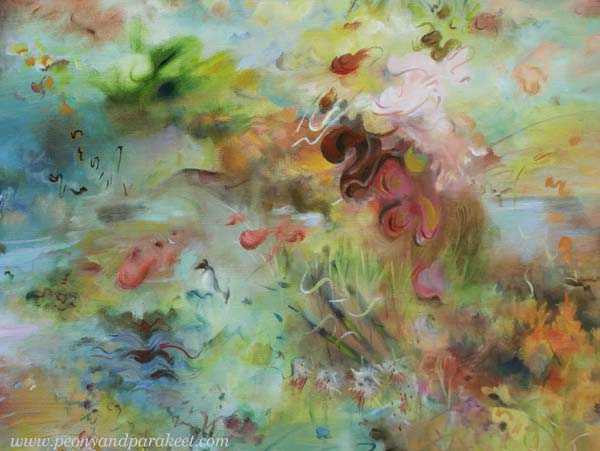
And to get hold of the whole, we have to get in touch with our inner self and grow our skills.
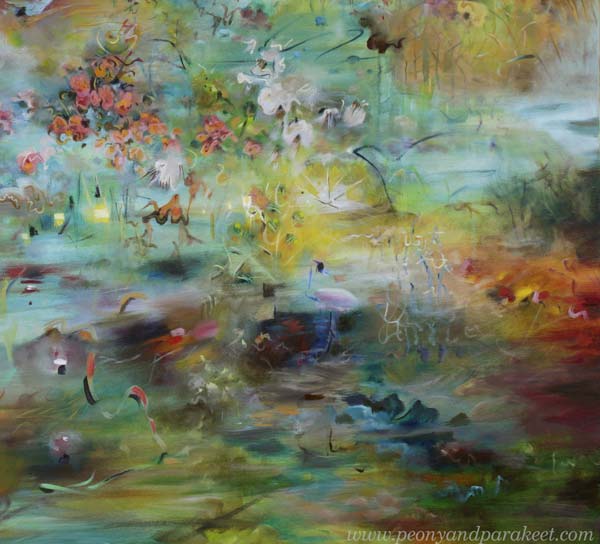
Art is like a meadow that grows seed by seed.
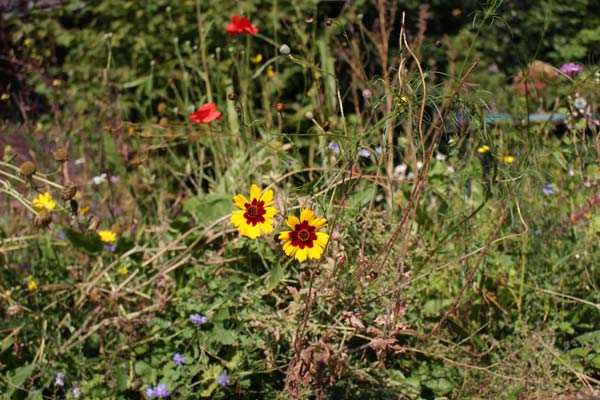
Love and sunshine are needed!
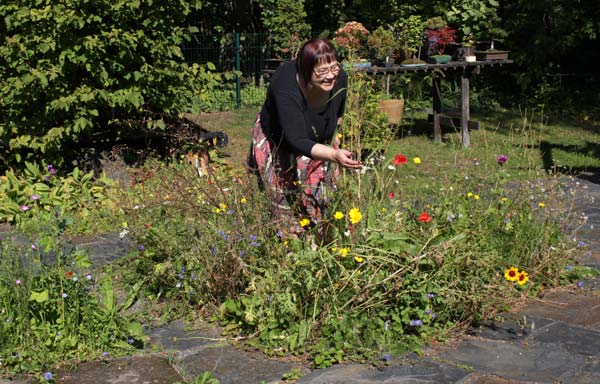
I try to speak softly to myself when I paint. Like it would be a child who paints, not an adult. I hope this friendliness also comes through in my classes!
Your Childhood Dream?
Painting big and detailed takes not only friendly self-talk but also patience. That’s why I like to practice with smaller drawings.
Big or small – we are on this journey together!
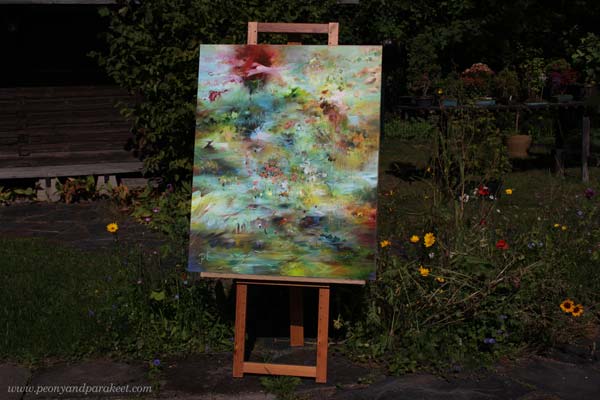
What was your childhood dream? What subjects did you draw as a child?
End of Summer – Freely with Watercolor Pencils
This week is about coloring freely with watercolor pencils. Let’s ponder about the change of season and how to process it through art-making!
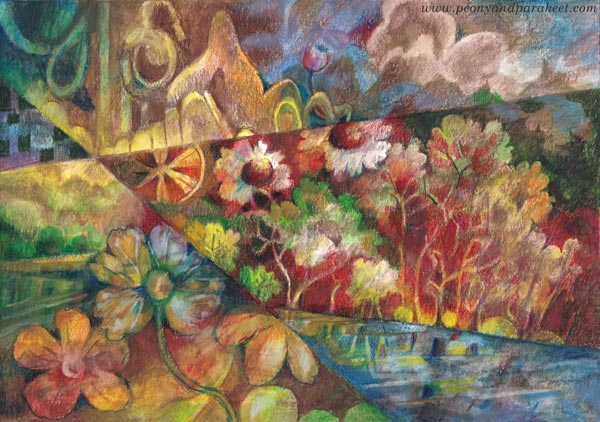
New Season – New Colors Are Calling!
Even though the weather has been warm, I find that my thoughts are already turning to fall.
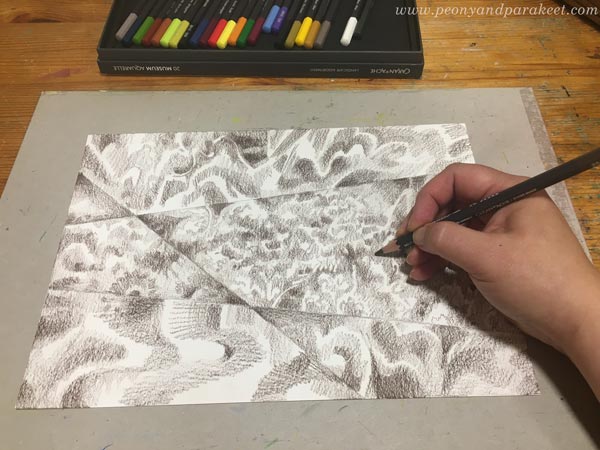
When I open the box of watercolor pencils, my eyes immediately go to the brown shades.
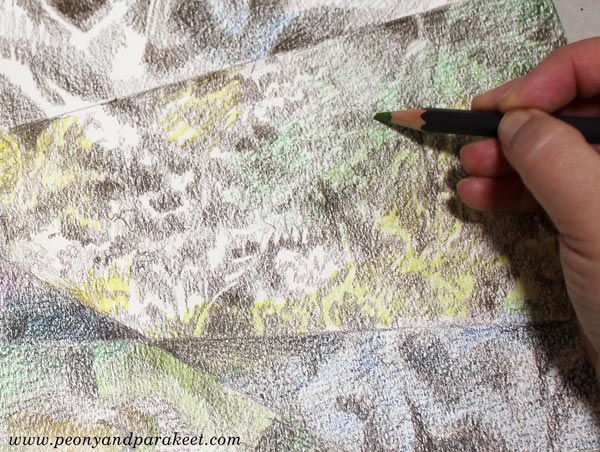
In the summer everything is bright and clear, the fall is darker and curlier.
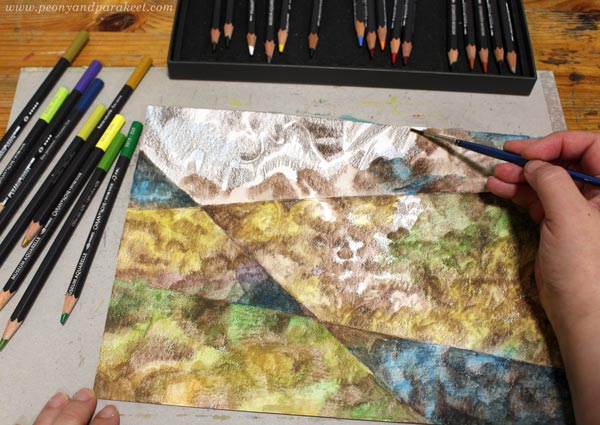
When Coloring Freely, Art Can Be Your Friend
10 years ago, I started as a full-time artist. At that time, art was a queen who I placed on a pedestal and looked up to. Today, art is not only my colleague but also my friend. We look at each other eye to eye and smile like-mindedly.
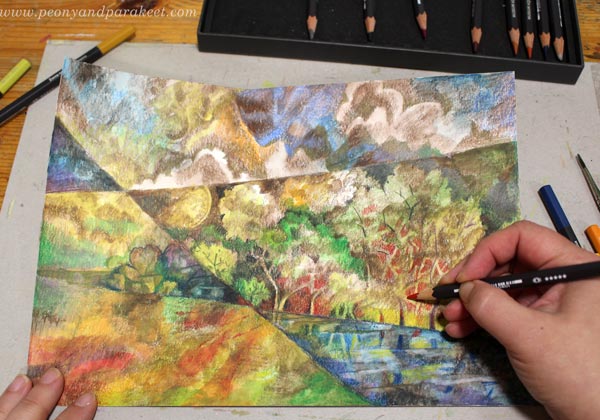
“It’s such a sad feeling when summer is coming to an end. There is only a dark autumn and a cold winter ahead” I told her last week. “Don’t worry” she said, we have recorded the summer and there are many wonderful things in the fall too.
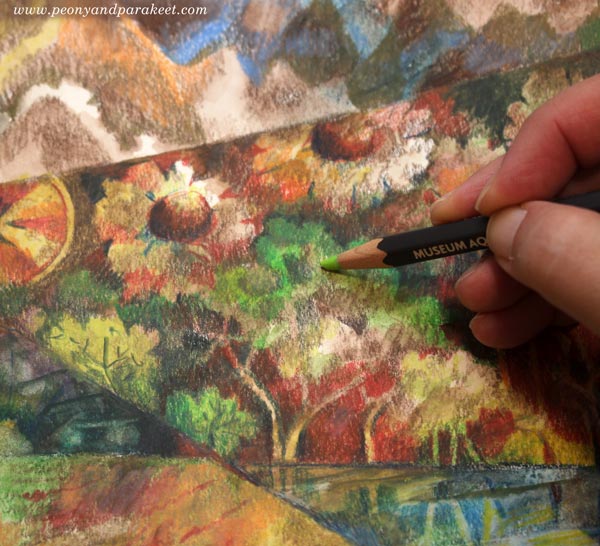
Indeed, summer is recorded. In July, I started working on the course Joyful Coloring. Now when I edit videos, I devour them like comfort food. The sun really shines there. Happiness can be heard in my speech and can also be seen on paper.
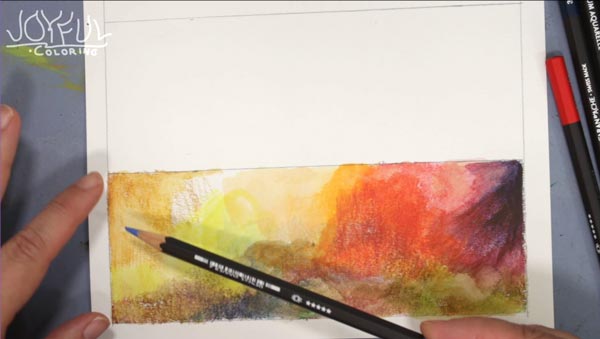
Everything indicates that I want others to have art as a friend too, not just on a pedestal.
Seasonal, But Freely with Watercolor Pencils
The watercolor pencils I bought in June (Caran d’Ache Museum Aquarelle) are already very dear. Because the color can be spread quickly with water, time is saved for details.
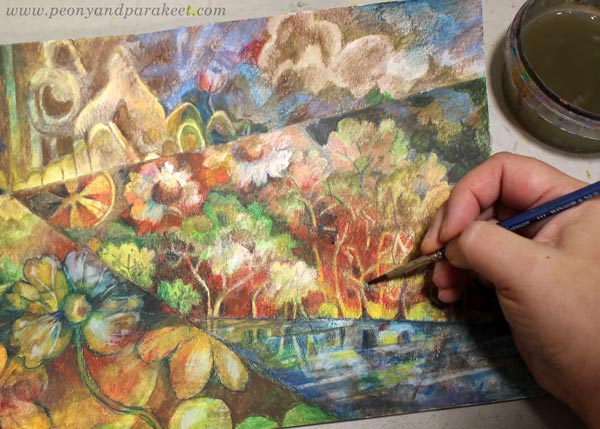
It is important for me to keep not only painting but also drawing. By drawing freely, we create a bridge between the outer and inner worlds. We can break the glass and travel between what we see and think.
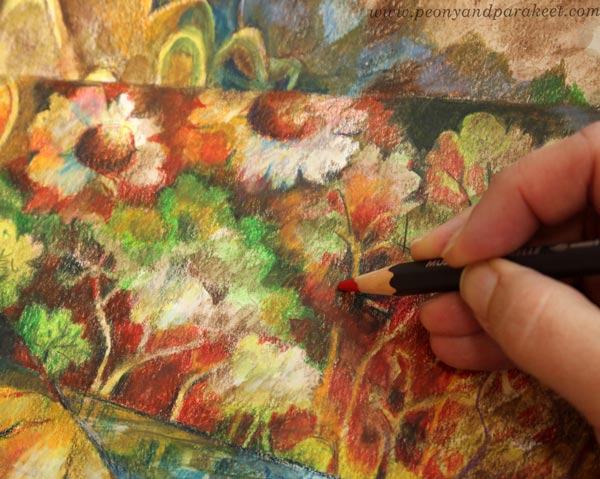
I gave this piece the title “End of Summer.”
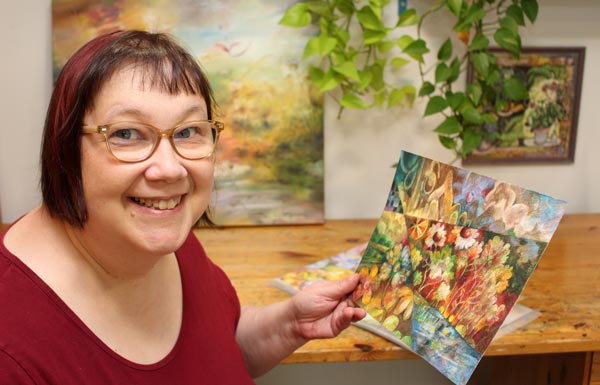
When I look at it, I get the feeling that an end can also be a new beginning. A joyful thought!
Joyful Coloring – Sign Up Now!
Start with blank paper and create freely with watercolor pencils!

The new online course Joyful Coloring will begin on Sept 16, 2024.
>> Sign up Now!